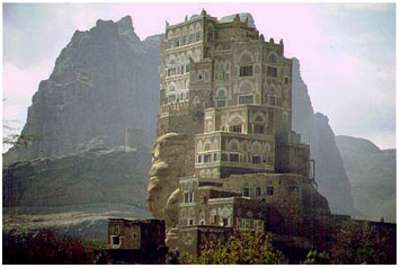
| THE HANDSTAND | FEBRUARY-MARCH2010 |
YEMEN
WHEN SUSPICIONS LIKE THIS COME TRUE WE MUST LOOK
CAREFULLY AT ALL SUSPICIONS.
US runs 'secret' military
operations in Yemen
Wed, 27 Jan 2010
http://www.presstv.com/detail.aspx?id=117176§ionid=3510203
Washington has involved in secret joint operations in
Yemen after President Barack Obama approved US military
and intelligence teams to be dispatched to the country,
the Washington Post revealed Wednesday.
The operations begun six weeks ago, involving troops from
the US military's clandestine Joint Special Operations
Command (JSOC), whose main mission is tracking and
killing suspected terrorists, the Post reported.
The American agents are helping the Yemeni army develop
tactics and providing Sana'a forces with electronic and
video surveillance, as well as three-dimensional terrain
maps, the report said.
In addition to "highly sensitive intelligence,"
the US is sending weapons and munitions to be used
against what the White House describes as an al-Qaeda
cell operating in the Arabian Peninsula, it added.
In late December, President Obama even approved a strike
against a compound in southern Yemen where US citizen
Anwar al-Aulaqi was allegedly meeting with regional
"al-Qaeda leaders," the report added.
"We are very pleased with the direction this is
going," the Washington Post quoted an unnamed senior
administration official as saying of the cooperation with
Yemen.
Washington has also been sending a steady stream of high-ranking
officials to visit Sana'a, including the rarely seen JSOC
commander Vice Adm. William McRaven, White House
counterterrorism adviser John Brennan, and head of US
Central Command Gen. David Petraeus.
Earlier in January, the White House pledged $121 million
in aid to help the unpopular Yemeni government crush
uprisings.
However, amid rising concerns over the US role in
military operations in Yemen, the government continues to
its offensive against the country's Shia minorities in
the north.
Backed by the Saudi military, the operation has left
hundreds killed and tens of thousands displaced in the
battle zone, prompting repeated warnings of a
humanitarian disaster in the making from international
organizations.
MRS/MD
Is the War Against Terrorism
Going to Save Yemen?
Mohammad
Mekhlafi
Lawyer and
member of the "Yemeni Joint Committee"
Arab Reform Iniative Press

Since the re-unification in 1989, foreign fighters
from throughout the Arab world have entered Yemen. The
number of "Afghan Mujahedeen" reached over 60,000
people. They were led by Usama bin Laden, and
participated in the 1994 war against the country's south
and the socialist party. President Ali Abdullah Saleh
used them to break the society's resolve and to weaken
the different political forces. His objective was to rule
alone and transform the structure of power into a kin
system. "Afghan Mujahedeen" were able to
infiltrate Yemeni society and state apparatuses,
including military and security bodies. Since this time,
it is not clear if any distance between the Yemeni power
structure and these terrorist organizations has been
established. The ruling elite- in the name of the "War
against Al-Qaeda" - is now trying to win support
from abroad in order to annihilate political forces,
continue accumulating power, and eventually ensure the
succession of Saleh's son. The ruling power clearly
suffers from a lack of popular legitimacy. The war in the
north has become even further reaching and has taken on a
regional dimension with the entrance of Saudi Arabia into
the scene, as well as with the participation of the
American armed forces in air strikes. These interventions
will not lead to security or stability in the region; on
the contrary, they will lead to a collapse of Yemeni
national cohesion. These interventions are deepening the
Yemeni crisis in two ways. First, the ruling power is
using the war as a source of legitimacy, and will use
foreign intervention to prolong the conflict and profit
from it. It will seek to continue to encourage a
widespread civil war by giving support to armed tribal
and regional factions, such as the Committee in Defense
of Unity, the Phalanges of Jihad, and the Popular Army.
Even if the Houthi rebellion in the north were to accept
a truce in the coming days, it would only be temporary.
There is every reason to believe that the conflict will
flare up again even more dramatically and expand.
Second, the February 2009 agreement between the
government and the political opposition alliance to delay
elections for two years and prolong the mandates of the
current government and parliament was designed to prepare
a national consensus among all Yemeni political forces.
The government is now using the war in order to free
itself of dialogue and existing accords. The opposition,
as represented by the Joint Committee and the Pacific
Mobilization of the South, will be treated with more
violence, and the ruling power will free itself of its
responsibility towards development and the fight against
poverty and unemployment. This will incite new
ingredients for further uprising and will render the
country more likely to enter into a total civil war. The
destruction of terrorist organizations can only take
place via national consensus and a common political
strategy with all political parties of Yemen
participating. However, national consensus requires
serious dialogue with no group excluded. Today, the
ruling power - strengthened by international support -
refuses to continue such a process. Yemen is entering
into a vicious cycle.